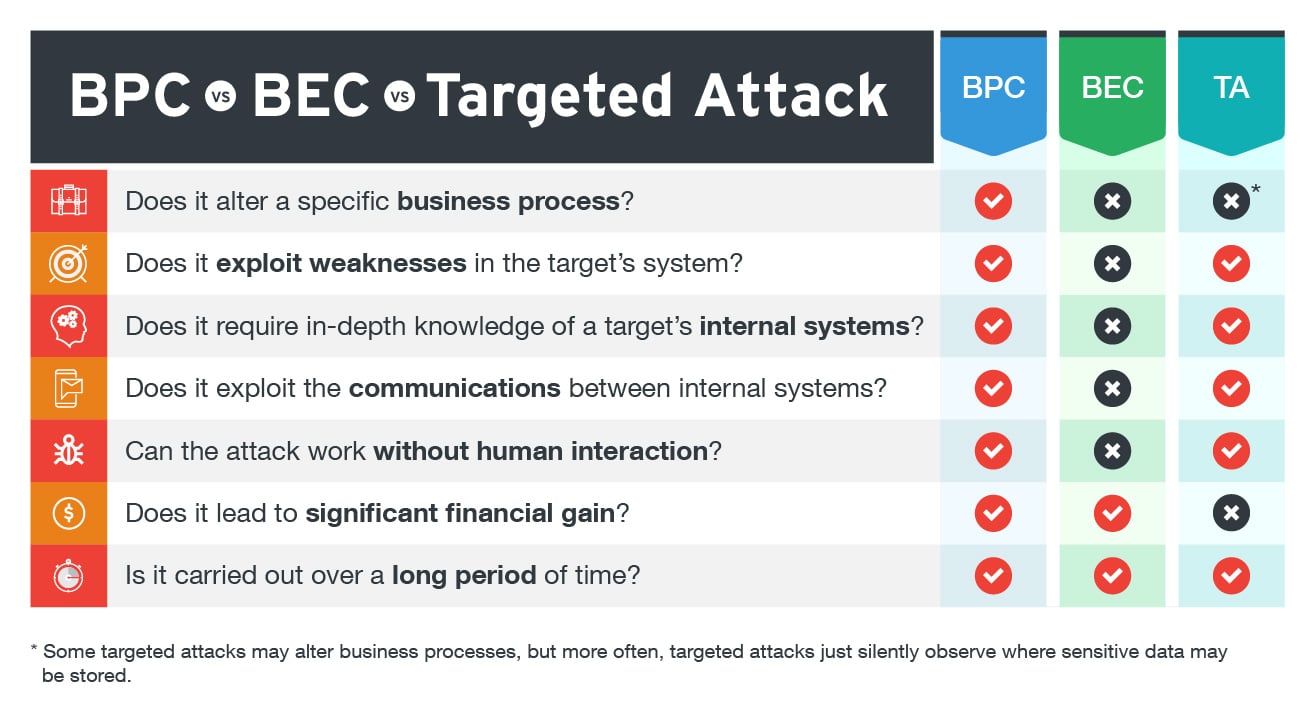Business process compromise (BPC) is a type of cyberattack that is designed to disrupt normal business operations in order to gain a financial or other advantage. The goal of this type of attack is usually to steal valuable information, disrupt processes, cause economic damage, or even extort money from a victim.
Unlike other types of cyberattacks, such as ransomware or data leakage, BPC attacks are often less visible and effect intangible assets such as intellectual property, customer loyalty and employee morale. Additionally, attackers may use BPC to gain an insider’s view of a company’s operations in order to gain further insights which can potentially be used to cause further damage.
BPC attacks can take many forms. They range from hacking into a system or network and using malicious software to disrupt the workflow of operations, to disrupting production lines and damaging some of the equipment or software. Another popular form is to manipulate company data, including financial, human resources, and customer records. In rare cases, hackers can even gain access to privileged user accounts and gain access to confidential information.
Businesses can take certain precautionary steps to reduce the risk of a BPC attack, such as ensuring adequate security practices, such as having up-to-date software, making sure all data is backed up, and using strong passwords. In addition, many companies are investing in cybersecurity awareness and training in order to ensure employees are knowledgeable of the risks associated with BPC attacks.
BPC has become an increasingly pressing concern as more and more organizations move their operations to the cloud. Cloud platforms can be more vulnerable to BPC attacks due to the lack of physical security measures. Businesses should take extra steps to ensure their cloud-based systems are adequately protected and secure.






